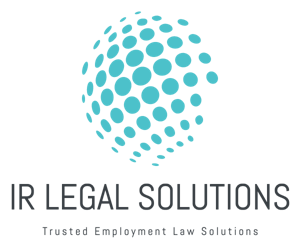this Sunday, 28 March 2021, JobKeeper ends.
So businesses will need to make sure they are prepared for any flow on impacts. To help you make the right decisions for your business and team, businessDEPOT and IR Legal Solutions take a brief look at what you need to know.
a few things to think about if you have employees on JobKeeper
Starting from Monday, 29 March 2021:
- you can no longer use the Fair Work Act JobKeeper provisions to issue or make JobKeeper enabling directions or agreements, and any directions or agreements previously in effect will come to an end; and
- pre-JobKeeper terms and conditions of employment will apply again for your employees – these may come from a combination of Modern Award and contractual terms and conditions.
Where your employees will revert to their usual, pre-JobKeeper employment arrangements [including hours of work per week, location of work, and remuneration], it will be extremely important to have a handle on your income and expenditures. This will ensure you will have the ability to pay employee wages, employee entitlements, tax and superannuation as and when they fall due [remember – civil penalties can apply to your business, or to individuals in your business if there are any underpayments of wages, employee entitlements or non-payments of liabilities].
If you are unsure about the financial situation of your business or need assistance to best manage your income and cashflow as JobKeeper ends, speak to a trusted financial advisor.
so, what does the end of JobKeeper mean for your business?
If you are unable to return to ‘business as usual’ when JobKeeper ends, you may need to urgently consider what measures you need to put in place. This may include a review of your operations and employment arrangements, such as a restructure of your workforce to reduce labour costs.
If you need to consider a restructure of your employment arrangements, there are a number of key issues to consider including:
what are the key roles and duties that are essential to your business operations?
[i.e. the key elements that ensure you can keep the doors open]
what do you need to do to ensure you can retain these roles within the business?
[for example, do you need to make some other, less essential roles redundant?], and
what industrial instruments apply to your business and employees?
Modern Awards and enterprise agreements include notification and consultation obligations that you must comply with before taking any steps that will impact an employee’s employment [including any proposed redundancy of their role].
Notification and consultation obligations will require that you:
- notify your impacted employees about proposed business changes [before you implement them] – being clear about your change proposal and what it means for employees will be key to a successful consultation process, and
- consult on opportunities to mitigate any potential redundancy and/or proposed business changes.
are there opportunities during consultation to consider different employment arrangements that might mitigate the need for a redundancy?
For example, a full-time employee reducing their hours to part-time employment or taking a period of extended leave. Are there other job opportunities with an associated entity of your business [if so, you will need to carefully consider these to ensure you are meeting your redeployment obligations],
the health and safety of your employees
work health and safety obligations will mean you need to consider and manage the impact of any changes [such as reductions in roles] on the physical and mental health of your remaining employees [including things like the risk of stress, fatigue, and/or burnout], an
the cost of termination payments
There are a range of employee entitlements that are likely to be triggered if you are terminating employees by way of redundancy. Employee entitlements will depend on a range of variable factors, including the size of your business and the length of an impacted employee’s service, and remember these employee entitlements can include:
- accrued but untaken annual leave and annual leave loading
- long service leave
- payment in lieu of notice [if employment will end straight away or partway through the notice period], and
- redundancy [severance] pay.
redundancy reminders
If your business needs to restructure and implement a redundancy process, remember that if this is not managed correctly and in accordance with legal obligations, it could expose your business to additional costs and impacts. For instance, a successful unfair dismissal claim [where the Fair Work Commission can award compensation to employees if a redundancy is not genuine or an employer has not complied with the requirements of a ‘fair dismissal’], or contravention of Modern Award claim. So it is critical to ensure you understand those legal obligations and implement change through a compliant process.
If you are unsure how to best navigate these changes and the impacts on your business, businessDEPOT and an exeperienced business layer, along with IR Legal Solutions can provide you with specific financial and legal advice and HR Consultancy support to help you with these changes.





















































